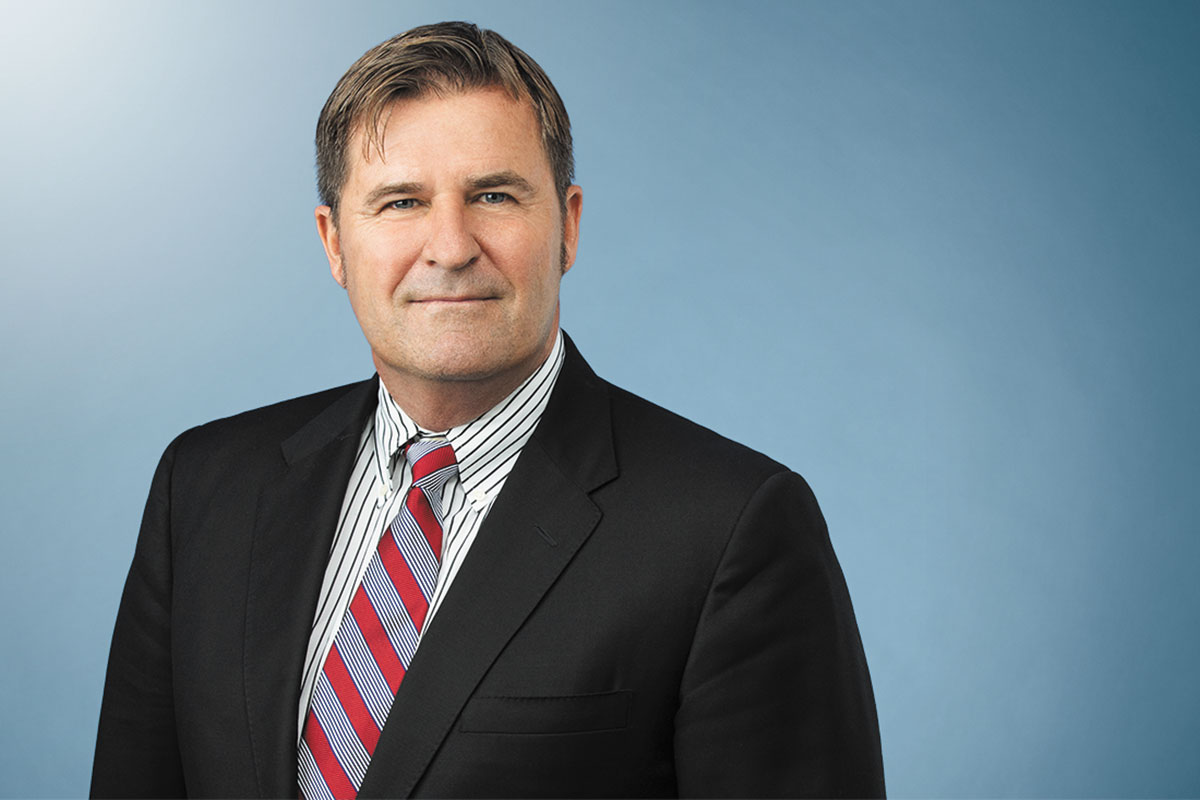Subscriber Benefit
As a subscriber you can listen to articles at work, in the car, or while you work out. Subscribe Now
Faegre Drinker Biddle & Reath LLP
Indiana University Maurer School of Law, 1989
Why did you decide to enter the legal profession?
It was fortuitous. I was working in Chicago after undergrad and befriended a guy who was a young real estate lawyer for a huge Chicago firm. Every time we got together, I would grill him about what he was working on at the time. After a while he noted, “You’re more interested in my job than I am. You should go to law school.” That was the first time I gave serious consideration to going to law school. Back then, not nearly as many people had careers before going to law school. Plus, I did not really know any lawyers. So I took the bar, did well enough to get in and off I went on a lifelong adventure.
If you hadn’t pursued a legal career, what would you be doing?
I was a journalism major in undergrad, so that is a possibility. Or I could have continued a business career.
Who is someone who has inspired you in your career?
The late Karl Haas, my first mentor, because he showed me that you could be creative doing transactional work. Joe Scimia, my mentor after Karl, for demonstrating that understanding the client’s business adds value in any deal. Finally, Drew Soshnick and Brian Fennerty. Neither work in the real estate area, but both are incredibly bright and conscientious professionals who always have time to help a colleague.
What’s the best advice you’ve ever received?
I guess it would be from that buddy in Chicago who told me I should seriously think about going to law school. That was in 1985 … I do not think anyone else’s advice has carried me for so long.
What makes a good lawyer/judge?
There are so many ways to skin a cat in this business. By that I mean no one direction or discipline is necessarily better than another. Some lawyers build large books of business, while others are highly sought after by internal and external clients because of the quality of their work. Ideally your practice would include a percentage of each, but there is no one right way. In addition, mentoring law students and young lawyers is a must. It is also one of the most fulfilling aspects of the job.
What’s it like to work on high-profile P3s like Lucas Oil, the J.W., etc.?
It is great because it is interesting and unique from your day-to-day practice. It is not every day that you can help a client buy the Canal or Geist Reservoir, or get to be part of the team that negotiates the Lucas Oil or Conseco Fieldhouse (now Gainbridge) deals. There are often a lot of moving parts in those deals and a welcome break from more mundane, repetitious tasks.
Do you have a secret talent?
Not that I know of.
What drew you to real estate law, and what do you enjoy about that practice area?
I just knew I wanted to do transactional work because of experiences I had as a summer clerk. I was interested in everything the transactions lawyers talked about on a daily basis. When Faegre Drinker (then Baker & Daniels) hired me, there was an opening in real estate and corporate. I took the real estate job and am grateful I did.
What is something you wish people knew about lawyers?
That if you have a successful practice, in many ways it is like running your own small (or even large, in some cases) business. The climb is like fostering and growing a business, which many lawyers find fulfilling.
How do you spend your free time?
With family. We have three grandkids, so that is the best form of recreation. •
Please enable JavaScript to view this content.
